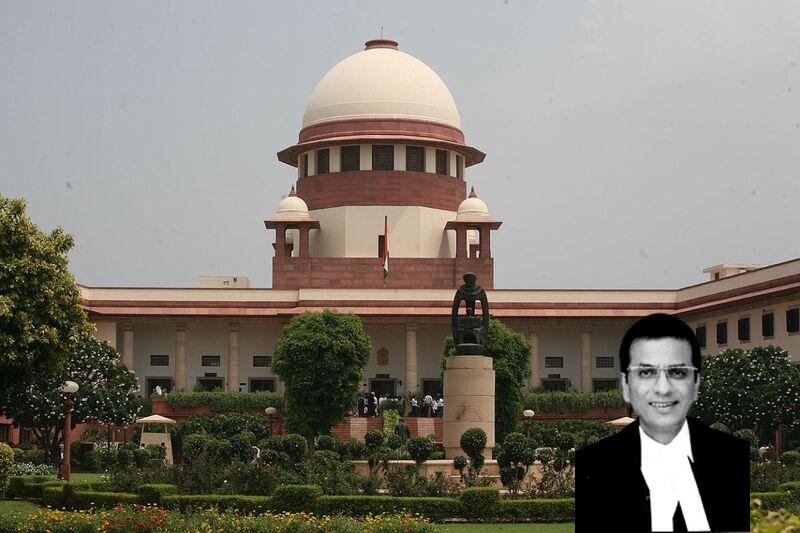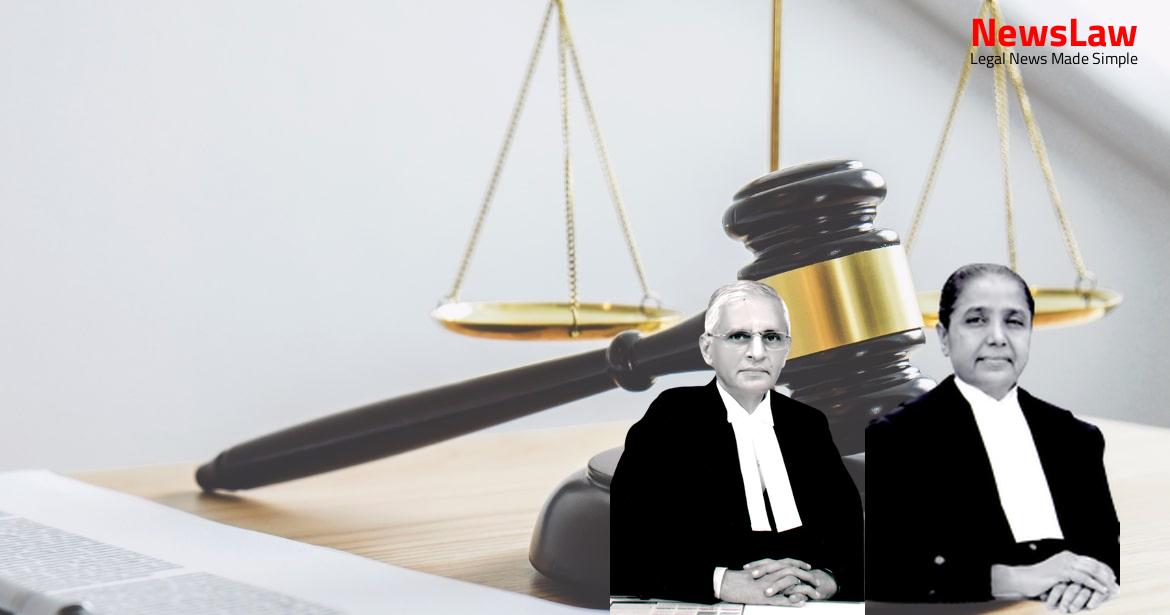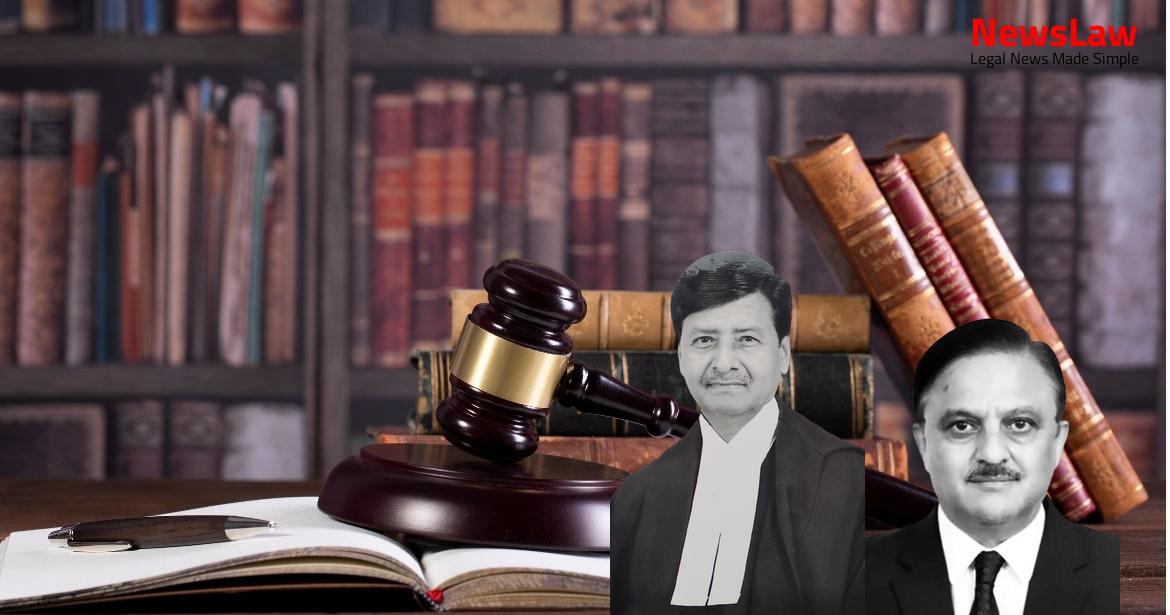The appellant had filed the Divorce proceedings on 12.03.1996 before the District Court, Chandigarh on two grounds, namely ‘cruelty’ and ‘desertion’ as contemplated in Section 13(1)(ia) and 13(1)(ib) respectively of the Hindu Marriage Act 1955 (hereinafter referred to as the said Act). The acrimony in their relationship appears to have developed when the appellant was posted at Madras in January 1984 and the respondent did not join him, and preferred to stay initially with the parents of the appellant and thereafter with her son. As stated hereinabove, the District Court granted the decree of divorce, as prayed for by the appellant however the Single Bench of the High Court reversed the same and the Division Bench of the High Court confirmed the judgment and order passed by the Single Bench vide the impugned order. Vipin Gogia, the learned advocate appearing for the appellant submitted that the High Court had committed gross error in reversing the well-reasoned decree of divorce granted by the District Court, which had concluded that the respondent had treated the appellant with cruelty and had deserted the appellant without any reasonable cause as alleged in the divorce petition. Madhurima Tatia for the respondent submitted that the respondent being an aged lady does not want to die with the stigma of a “Divorcee.” According to her, the respondent had made all efforts to respect the sacred relationship between the parties all through out and is still ready to look after the appellant with the assistance of her son. Hafizunnisa Yasinkhan [(1981) 4 SCC 250 : 1981 SCC (Cri) 829] this Court stated that the concept of 8 legal cruelty changes according to the changes and advancement of social concept and standards of living.
It has been used in Section 13(1)( i – a ) of the Act in the context of human conduct or behaviour in relation to or in respect of matrimonial duties or obligations. The cruelty may be mental or physical, intentional or unintentional. The absence of intention should not make any difference in the case, if by ordinary sense in human affairs, the act complained of could otherwise be regarded as cruelty. It cannot be decided on the basis of the sensitivity of the petitioner and has to be adjudged on the basis of the course of conduct which would, in general, be dangerous for a spouse to live with the other.” 10.
This Court collating the observations made in the earlier decisions, stated its view as under: – “Collating the aforesaid observations, the view of this Court may be stated thus: Heavy burden lies upon a petitioner who seeks divorce on the ground of desertion to prove four essential conditions, namely, (1) the factum of separation; (2) animus deserendi; (3) absence of his or her consent; and (4) absence of his or her conduct giving reasonable cause to the deserting spouse to leave the matrimonial home.” 12. The learned counsel appearing for the appellant relied upon the decision of this Court in Lachman Utamchand Kirpalani [Lachman Utamchand Kirpalani v. —In this sub-section, the expression “desertion” means the desertion of the petitioner by the other party to the marriage without reasonable cause and without the consent or against the wish of such party, and includes the wilful neglect of the petitioner by the other party to the marriage, and its grammatical variations and cognate expressions shall be construed accordingly.”” “ 8. Coming now to the facts of the present case, it is undisputed that the wife continued to live with the husband without any grievance for 21 years and gave birth to three children. At this stage of life when there were three grown up children 14 and the wife had been living with the husband for 21 years, if unilateral decision was taken by the husband and the wife expressed her opposition, could it be held that the wife deserted the husband or treated him with cruelty. Learned counsel for the appellant refers to Exh.A-8, which is a letter addressed to the wife, in response to her representation for maintenance. Learned counsel for the appellant suggested that a grand-daughter of the appellant should visit the appellant, in which case, the appellant will have no objection to the jewellery being given to the grand daughter. Learned counsel for the wife states that the grand-daughters will visit the appellant as often as possible and also depending on desire and attitude of the appellant but not as a condition for finding of learned Single Judge to be upheld.
This brings us to advert to the submission made by the appellant for granting the decree of divorce on the ground that the marriage has irretrievably broken down. Having said so, we wish to clearly state that grant of divorce on the ground of irretrievable breakdown of marriage by this Court is not a matter of right, but a discretion which is to be exercised with great care and caution, keeping in mind several factors ensuring that ‘complete justice’ is done to both parties. But these facts have to be evaluated keeping in view the economic and social status of the parties, including their educational qualifications, whether the parties have any children, their age, educational qualification, and whether the other spouse and children are dependent, in which event how and in what manner the party seeking divorce intends to take care and provide for the spouse or the children. This question as to the power and jurisdiction of this Court under Article 142(1) of the Constitution of India is answered in terms of paragraphs 8 to 13, inter alia, holding that this Court can depart from the procedure as well as the substantive laws, as long as the decision is exercised based on considerations of fundamental general and specific public policy. (ii) In view of, and depending upon the findings of this bench on the first question, whether this Court, while hearing a transfer petition, or in any other proceedings, can exercise power under Article 142(1) of the Constitution, in view of the settlement between the parties, and grant a decree of divorce by mutual consent dispensing with the period and the procedure prescribed under Section 13-B of the Hindu Marriage Act, and also quash and dispose of other/connected proceedings under the Domestic Violence Act, Section 125 of the Cr.
21 This question is also answered in the affirmative, inter alia, holding that this Court, in exercise of power under Article 142(1) of the Constitution of India, has the discretion to dissolve the marriage on the ground of its irretrievable breakdown.



